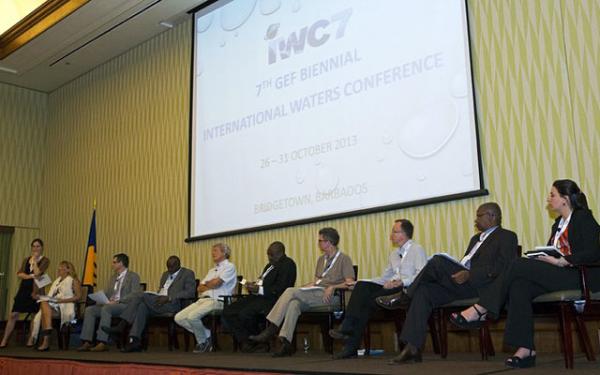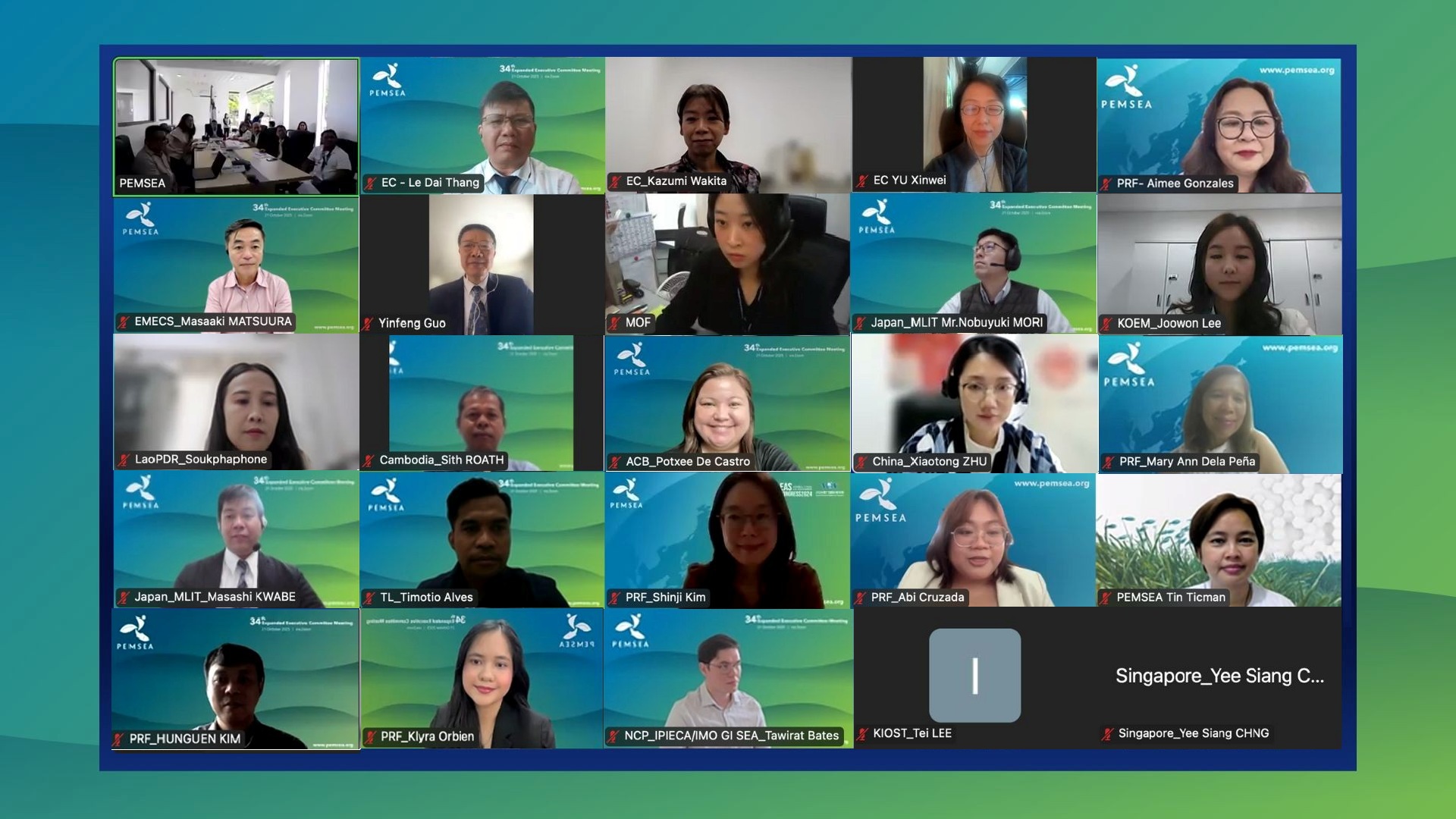PEMSEA Shares Experience at 7th GEF IW Conference in Barbados
Wednesday, 19 February 2014

Bridgetown, Barbados — The Caribbean island nation of Barbados hosted over 200 delegates for the 7th Global Environment Facility (GEF) International Waters Conference (IWC7) from 28-31 October 2013. Organized by the GEF International Waters Learning Exchange and Resource Network (IW:LEARN), the biennial event facilitated the sharing of experiences and good practices among GEF-supported initiatives on the sustainable management of transboundary waters.
Representatives of UN agencies, international research institutions, policymaking bodies, nongovernmental organizations and the private sector participated in plenary sessions, peer-to-peer discussions and other activities on transboundary water systems including shared river basin, lakes and large marine ecosystems (LMEs). PEMSEA was represented by the Programme Specialist of the PEMSEA Resource Facility, Mr. Guo Yinfeng.
With the theme "Economic Valuation as a Tool to Bridge the Science-Policy Gap," the IWC7 reviewed the current use of economic valuation in international waters management and determined how to best incorporate its use in future GEF IW projects. Discussions among participants recognized the significance of economic valuation and the need to develop mechanisms for effectively translating and adapting scientific findings, including outcomes of economic studies, into relevant national and local policies. The delegates collectively agreed that scientists and technical experts should produce more accessible and relevant information to decisionmakers.
The proposed strategy for GEF's sixth replenishment period (GEF-6 IW Strategy) was also presented at the conference. The GEF-6 IW Strategy outlines GEF IW's areas of focus for the 2015–2018 investments. One of the key approaches discussed is the integrated management of ocean ecosystems in addressing multiple stresses in their shared LMEs and coasts. This may be achieved through enhanced efforts on reducing ocean hypoxia, prevention of loss and degradation of coastal habitats and adoption of sustainable fisheries practices.
The GEF Transboundary Waters Assessment Program (TWAP) also presented its project on conducting a global indicator-based assessment of transboundary water bodies. This initiative aims to assist GEF and other donors to improve the setting of funding priorities and promoting science-based management of international waters. The results of these assessments will be disseminated through various database platforms and can be accessed by GEF IW project implementers and other interested stakeholders.
Aside from plenary sessions and workshops, the IWC7 also showcased an innovation marketplace featuring an exhibit of various GEF IW projects' experiences and good practices. This aims to facilitate interaction and networking opportunities among the GEF Secretariat, GEF IW project managers and other partner institutions.
PEMSEA's booth presented the organization's transformation in the last 20 years and its experiences in the development and implementation of the Sustainable Development Strategy for the Seas of East Asia (SDS-SEA). Several information brochures were also distributed to share and promote PEMSEA's products and services, including the Port Safety, Health and Environmental Management System (PSHEMS); Integrated Coastal Management (ICM) Code; PEMSEA Outreach Services; and other capacity-building activities. PEMSEA's video, titled "A Region in Motion: 20 Years of PEMSEA Action in East Asian Seas," was also selected as a finalist for IWC7's short film festival.
On the last day of the IWC7, the IW Conference Cup was handed over to PEMSEA representing the Asia-Pacific region. PEMSEA is now in the process of identifying a host city for the next IWC in collaboration with IW:LEARN and the GEF Secretariat.




